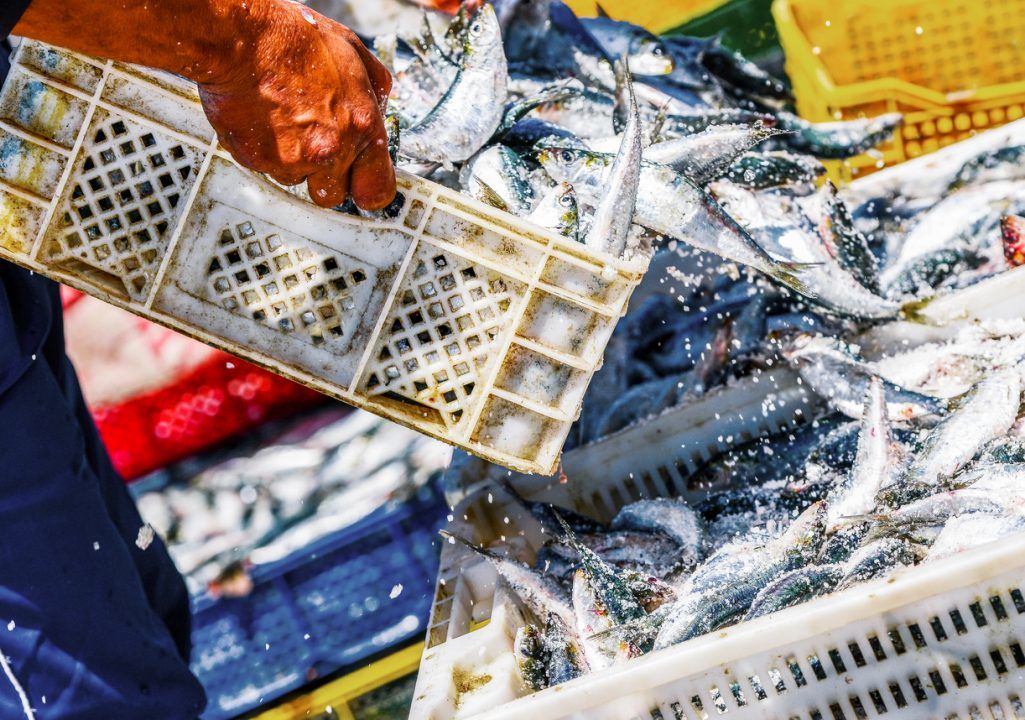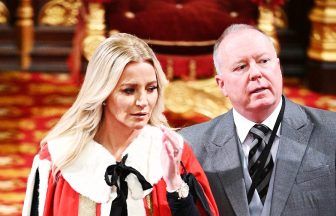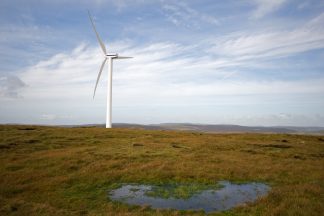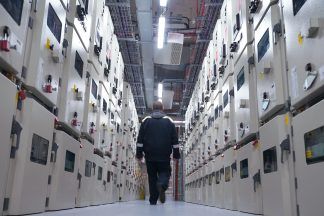Ending fuel subsidies and limiting some fishing gear should be introduced to help the industry tackle its impact on climate change, according to a new report.
The study from a group of environmental organisations says the UK and Scottish Government must help the fleet to modernise.
However, the industry says its carbon emissions are ‘tiny’ compared to other sectors.
The report from WWF, RSPB and the Marine Conservation Society claims that UK fisheries emit around the same energy over a year as powering 110,000 homes.
It’s called for limiting the use of ‘bottom towed’ fishing gear that the report states disturbs the carbon that is captured on the seabed and by marine life.
Mario Ray from WWF Scotland said: “This report makes clear governments across all four nations must help UK fisheries to re-think practices and modernise to meet the challenge of climate change and achieving net zero.
“While the Scottish Government has responsibility for 61% of the UK’s seas, and around 60% of all the UK’s fish is landed here, its current Future Fisheries Management Strategy fails to clearly set out the role the fishing industry will play in reaching our net zero commitments.”
The report, ‘Shifting Gears – achieving climate-smart fisheries,’ calls for an end to fuel subsidies that are currently in place for the sector.
It states: “This would increase fuel costs for fisheries which is expected to reduce overcapacity and actively help move UK fisheries away from fuel intensive fishing gear types such as bottom towed dredgers and trawlers, towards more low emission methods.”
However, the industry says it takes its responsibility to tackle climate change seriously and it is already modernising.
The Chief Executive of the Scottish Fishermen’s Federation, Elspeth Macdonald said: “Wild-caught fish is already a climate smart choice, with our industry producing healthy protein food with a much lower carbon footprint than meat and most vegetables.
“This is an industry that has a proud record when it comes to innovation and the adoption of new technology, with skippers constantly evaluating how to do things better.
“We work with government to ensure we are protecting marine features including key carbon sinks such as maerl beds, based on a robust process underpinned by evidence.
“That is the main reason that, contrary to what the NGOs allege, fish stocks in our waters are in such a healthy state, with for example the overall whitefish biomass at record high levels and catching (mortality) at an all-time low.”
The environmental groups say that more must be done to enforce Marine Protected Areas and monitoring of boats.
They also want more climate change objectives in any future and current fishing regulation.
Alex Kinninmonth, from RSPB Scotland said: “This report offers a roadmap for fisheries managers to meet climate targets while safeguarding our seas for future generations.
“Ahead of crucial climate and nature COPs and with a Joint Fisheries Statement by all four governments of the UK due, now is the crucial moment to commit to and deliver an ambitious ‘climate-smart’ strategy to future proof our fisheries and revive our world.”
Follow STV News on WhatsApp
Scan the QR code on your mobile device for all the latest news from around the country


 iStock
iStock


























